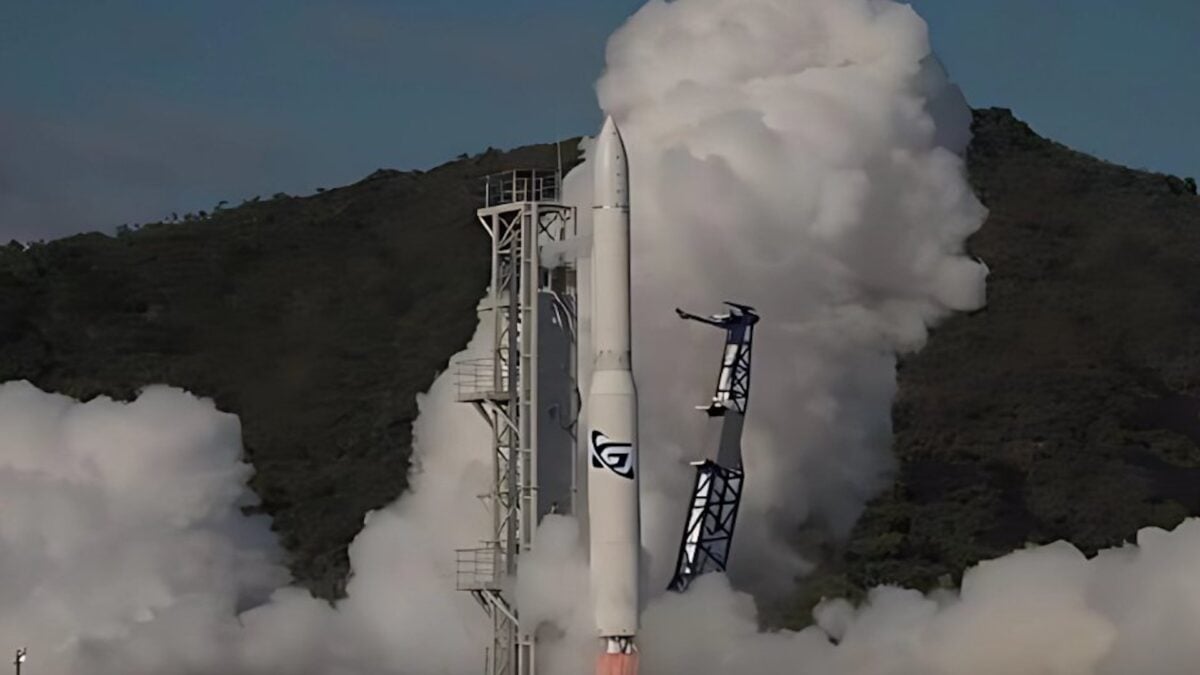Australia's First Rocket Crashes and Burns Seconds After Liftoff

The first Australian-made orbital rocket to launch from the land down under barely took off for its inaugural test flight, ending roughly 14 seconds after liftoff.
Australian startup Gilmour Space launched its Eris rocket for the first time from the company’s Bowen Orbital Spaceport in northern Queensland at 6:35 p.m. ET on Tuesday (8:35 a.m. on Wednesday local time). The first orbital rocket designed and manufactured in Australia had a less-than-ideal first showing. Footage showed Eris struggling to clear the launch tower before succumbing under its own weight and crashing, ending its debut while surrounded by plumes of smoke and a large fire.
Liftoff completed, launch tower cleared, stage 1 tested.
Awesome result for a first test launch. pic.twitter.com/EYbNbGDz3l— Gilmour Space (@GilmourSpace) July 30, 2025
“For a maiden test flight, this is a strong result and a major step forward for Australia’s sovereign space capability,” Gilmour Space wrote in a statement. The company listed the collection of flight data, the ignition of all four rocket engines, and a 23-second engine burn as the proud achievements of Eris’ first flight, noting that no one was hurt during the launch.
The Australian startup is eager to enter the growing space industry with its 82-foot-tall (25-meter) Eris rocket, which is designed to launch up to 474 pounds (215 kilograms) of payload to a Sun-synchronous orbit. The three-stage rocket is years in the making, but its test flight suffered several delays.
Gilmour Space, founded in 2012, received $36 million in funding in February 2024 and obtained its launch license from the Australian Space Agency in November of that same year, according to SpaceNews. At the time, Gilmour Space was hoping to launch its rocket within months, but its debut was pushed back several times. In March, Eris’ liftoff was called off due to a severe tropical cyclone. Then again in May, the rocket’s payload fairing accidentally deployed while Eris was sitting on its launch pad. After fixing the technical issue, the company aimed for a launch date in late June, but it was once again delayed due to weather.
Australia doesn’t see a lot of rocket action, although its vast uninhabited lands make it ideal for launch activities that don’t threaten populated areas. Northern Australia also offers direct access to Sun-synchronous orbits and low-inclination equatorial orbits. However, unlike space-faring nations, Australia lacks the proper infrastructure for rocket launches. Gilmour Space’s Bowen Orbital Spaceport is Australia’s first licensed commercial orbital launch facility.
Despite a short-lived debut launch, the Australian rocket company is already gearing up for its rocket’s second test flight, according to Gilmour Space.



- CỘNG ĐỒNG
- News
- Tech
- Food
- Causes
- Personal
- Art
- Crafts
- Dance
- Drinks
- Film
- Fitness
- Juegos
- Gardening
- Health
- Home
- Literature
- Science
- Networking
- Party
- Religion
- Fashion
- Sports
- Stars
- Xã Hội


